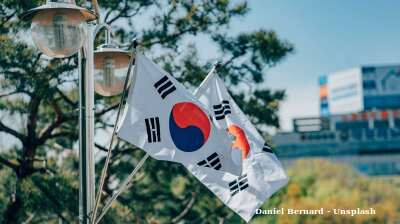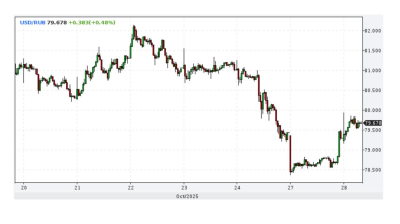Following several explosions in Belarus on March 16, fears have increased of a “false flag operation” being prepared by Belarus and Russia, which could bring Belarusian troops into the war with Ukraine.
Belarus’ backing of Russia’s war has increased western leaders’ scrutiny of Lukashenko, but also their support the Belarusian opposition. While Lukashenko has isolated himself both economically and diplomatically for the past two years, the Belarusian opposition has lately been winning even more support from the international community.
The military situation
The Pentagon stated earlier this week that it saw no indications of Belarus sending troops to Ukraine. Lukashenko is already very nervous as his only ally, Russia, is seeing its economy crumble under the latest sanctions and because Putin doesn’t seem very keen on refinancing his loans.
Around 50% of Belarus’ state debt is owned by Russia, and the country is therefore dependent on Russia refinancing and restructuring its debt as large repayments become due this year.
Belarus’ Prime Minister Roman Golovchenko met last week with his Russian counterpart to request more Russian support for Belarus’ economy. Moreover, Lukashenko’s son (probably accompanied by Golovchenko) flew home from UAE on Friday after a two-day visit in what were probably negotiations for loans.
While discussions on loans could have been conducted over the phone between Lukashenko and Putin, a possible participation of Belarusian troops in Ukraine requires more deliberation. This is probably why Lukashenko and Putin held 5-hour long negotiations in Moscow last Friday, March 18.
Lukashenko has provided heavy logistical support for Russia’s invasion of Ukraine, and has even allowed Belarus to be used as a launch pad for missiles against his southern neighbour. However, he has been stalling over the question of sending Belarusian troops to fight and it’s possible that a major dispute is going on between Minsk and Moscow, a dispute which could only be resolved by a face-to-face meeting.
The public communication from Minsk and from Lukashenko has been unclear to say the least. Last week, Lukashenko promised to increase the number of Battalion Tactical Groups (BTG) at the border with Ukraine, only for the Chief of the General Staff to later announce that the currently stationed troops will simply be replaced with fresh ones.
On 16 March, loud explosions were heard in several regions around Belarus. Last week, Ukrainian intelligence sources claimed that Russia intended to bomb Belarus and blame it on Ukraine in order for the Belarusian regime to have a legitimate reason to move troops into Ukraine.
The first explanation from Belarusian state sources was that the explosions were caused by military drills, the second explanation was that it was a sonic bomb detonating from a Ukrainian fighter jet. As in the above example with the BTG’s, the public communication is very contradictory.
Perhaps the Belarusian regime itself doesn’t know exactly what’s going on. It’s likely that Lukashenko is trying to play it safe by contradicting himself by increasing his war rhetoric while also constantly repeating that Belarus will not join the war. As one Belarusian analyst put it: "It's hard to look for logic in a situation where a person constantly needs to justify himself."
Ukrainian sources have claimed that Belarusian soldiers are refusing to join Russia’s war against Ukraine. Belarusian men aged 18-60 have been fleeing the country en masse lately for fear of military conscription, and this week Belarusian independent media claimed to have received several reports of people being drafted around the country. Even if Belarusian troops aren’t starting a revolution against their commanders, their combat morale is hardly high.
Putin is in desperate need of more soldiers for his offensive. He would probably consider Belarusian soldiers, even if their combat morale is lower than the average Russian’s. As of yet, there are no clear signs that Belarus will be sending any troops to Ukraine. If a plan is either in the making, or if Moscow manages to put sufficient pressure on Minsk to send troops, we’ll probably notice it soon.
The Belarusian opposition wins more ground
On Thursday, The United Nations High Commissioner for Human Rights, Michelle Bachelet, presented a report for the UN Human Right’s Council which detailed heavy human rights abuses by the Belarusian regime since the fraudulent elections of 2020.
The Belarusian diplomats cast her report aside, claiming it to be filled with “false accusations”.
Last summer, Michelle Bachelet presented a report on abuses against women in Belarus in relation to the crackdown on political dissent. The report sparked great debate in human rights circles as it provided details of psychological, sexual and other types of physical abuse.
While the pressure from the international community is mounting on the regime, the exiled opposition has been conducting interview after interview and has recently held many more high-level meetings with western leaders.
When the war started, Belarusian opposition leader Svetlana Tikhanovskaya announced that she would set up a transitional cabinet, which would act as an alternative and legitimate government compared to the one sitting in Minsk. Shortly afterwards, Belarus’ prosecutor’s office charged her with calling for “acts of terrorism and sabotage, high treason, and the commission of other actions aimed at harming the national security of the Republic of Belarus.”
On Thursday, Tikhanovskaya urged UN leaders to recognise Belarus as an occupied country due to its being filled with Russian troops. As bne IntelliNews has reported before, Belarus could today be considered a vassal state of Russia with Lukashenko having ceded control to Putin over any important decisions.
Since the fraudulent presidential elections in 2020 Lukashenko has lost all his credibility with the international community, and is only supported by Russia and to some extent by China.
Right now, everything is on the line for Lukashenko. As the Belarusian opposition have said: The fate of Belarus hangs on what happens in Ukraine. This is even more true regarding what happens in Russia.
If Putin loses the war and is replaced, Lukashenko will be ousted too.
News

South Korean parties clash over tariff deal with the United States
The Democratic Party has celebrated the deal as a diplomatic success that protects national interests, while the conservative People Power Party argues that the government misled the public about the scale of South Korea’s cash investment in the US

Hasina says supporters to boycott Bangladesh election
Hasina asserted that millions of her and Awami League’s supporters are expected to boycott the upcoming 2026 national polls after authorities barred the party from taking part.

South Korea pledges $350bn investment in the US
South Korea and the United States have reached a significant breakthrough in long-stalled trade discussions, agreeing on the specifics of a $350bn investment package in exchange for a reduction in US tariffs on Korean goods.

Russia tests nuclear-powered Poseidon torpedo, Putin says
Speaking during a hospital visit with soldiers wounded in Ukraine, Putin said the device was launched from a submarine and that its onboard nuclear power unit had been successfully activated.




